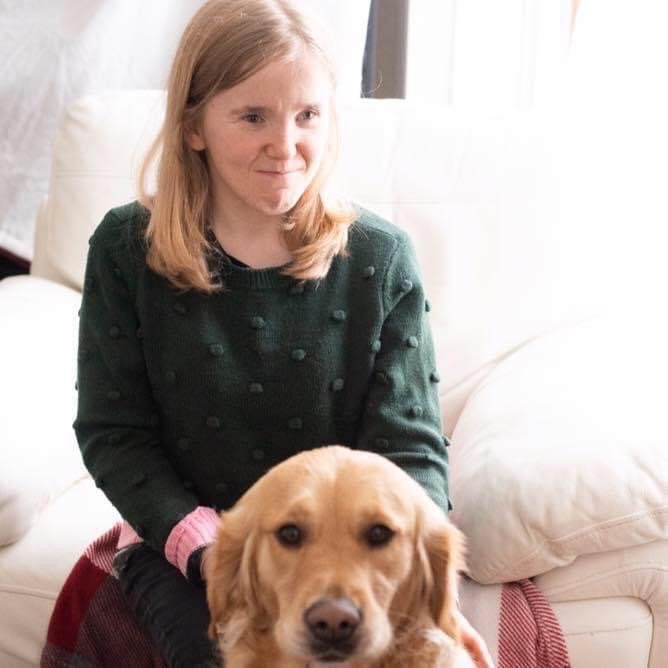Sorcha Pringle: Accessibility in a Covid World
Sorcha with her dog, Suzie
When the first lockdown of the COVID-19 pandemic hit the UK in March 2020, the working population of the country was forced to adapt their working practices overnight. Everyone had to work online, learning how to use new technology - whilst in lots of ways, relearning how to do their job in a new digital context. In some cases, this entirely changed the job that people were paid to do. Due to the vast shutdown, many people were left unemployed, but for those who were not, a huge new world of flexible digital working now existed.
For disabled and chronically ill people, a whole area of society seemed much more open and welcoming- from companies who were offering online residency and commissioning opportunities, to the National Theatre and its online performance offerings. It appeared that access to the arts was about to become a whole lot better.
For disabled people who had been asking for accommodations like online and home working for years, this sudden ability to do the very thing that they had been saying was possible for so long came as something of a slap. Myself and many other disabled people recognise the difficulties faced in having to make some services digital. In my own line of work community music, it took months of planning, specialist training, and providing participants with equipment to use at home. This was just to be able to produce something similar to the service we were providing in face-to-face workshops - and even then, it was different.
I want to explore the idea of replication and assimilation of face-to-face sessions. Is one of our stumbling blocks as a society that we tried to pretend that things would be the same online as in-person, and therefore we did not work on making an alternative experience of equivalent quality? As we have moved from a fully digitised working life, through various forms of attempted hybrid situations, it has struck me that for many people the digital work was always temporary. This meant that instead of setting up sustainable solutions to cater to a digital audience when face-to-face engagement was also possible, many people who have been accessing services online have been shunted into the background and had these opportunities removed now that the lockdowns have ended. What seemed like a glimmer of hope that accessibility would become the norm has quickly faded.
However, I do have hope. There are fantastic examples of organisations maintaining offerings such as digital residencies, and great attempts being made to continue a hybrid model at conferences and events. I am also encouraged by theatres and cinemas still offering socially distanced performances for those of us who feel levels of anxiety in public, or who are still medically at risk. I feel strongly that the creative sector holds a unique position; to be able to model excellence in flexible, digital and hybrid practices. I look forward to seeing where this leads. Accessibility is not, and should never be, an extra.
Sorcha Pringle is a member of Shaper/Caper’s Youth Advisory Board. She is a disabled activist, community musician, composer and creative facilitator based in Dundee. She uses music, poetry and storytelling to advocate for topics she is passionate about such as climate justice and disability equality, as well as promoting equal access to arts experiences for all.
You can find out more about the services Sorcha offers here.

